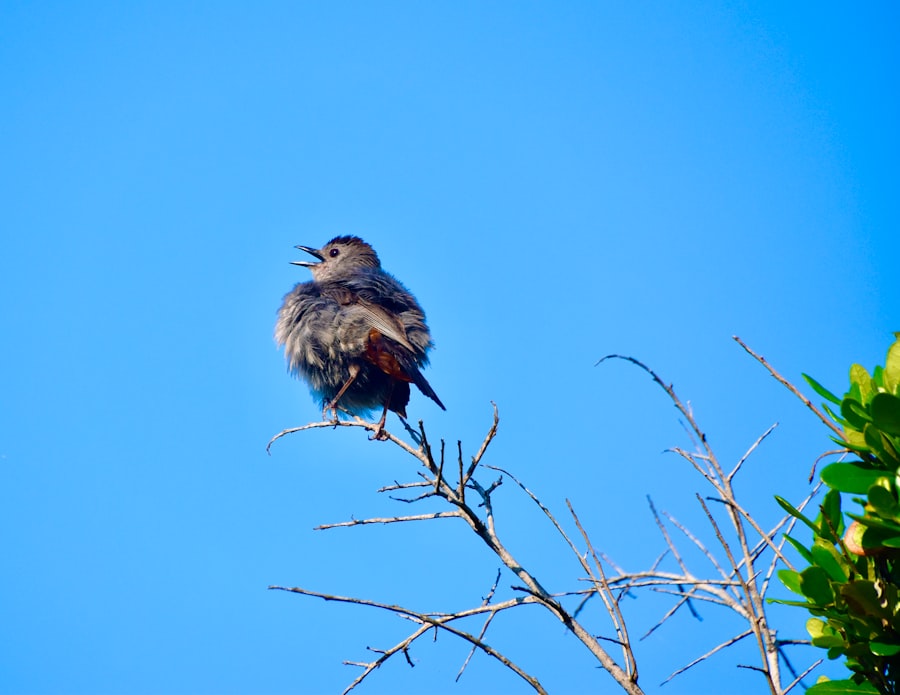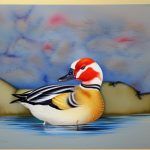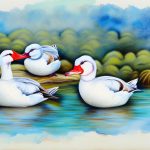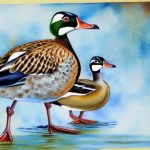Ducks have been a popular choice for backyard poultry enthusiasts in Australia for many years. They are known for their friendly nature, egg production, and pest control abilities. There are several different breeds of ducks that are well-suited for Australian backyard environments, each with its own unique characteristics and benefits. Whether you are looking for a duck breed that is good for egg production, meat, or simply as a charming addition to your backyard, there is a breed that will suit your needs. In this article, we will explore some of the most popular duck breeds for Australian backyards, as well as considerations for choosing the right breed for your specific circumstances. We will also discuss the care and maintenance of backyard ducks, as well as the benefits and potential challenges of raising ducks in Australia.
Table of Contents
- 1 Popular Duck Breeds for Australian Backyards
- 2 Considerations for Choosing the Right Duck Breed
- 3 Caring for Backyard Ducks in Australia
- 4 Benefits of Raising Ducks in Your Backyard
- 5 Potential Challenges of Raising Ducks in Australia
- 6 Conclusion and Resources for Backyard Duck Owners in Australia
- 7 FAQs
- 7.1 What are some popular backyard duck breeds in Australia?
- 7.2 What are the characteristics of Indian Runner ducks?
- 7.3 What are the characteristics of Khaki Campbell ducks?
- 7.4 What are the characteristics of Pekin ducks?
- 7.5 What are the characteristics of Muscovy ducks?
- 7.6 What are some considerations for keeping backyard duck breeds in Australia?
Key Takeaways
- There are several backyard duck breeds in Australia, each with unique characteristics and suitability for different environments.
- Popular duck breeds for Australian backyards include the Indian Runner, Khaki Campbell, and Pekin ducks, known for their egg-laying abilities and friendly nature.
- When choosing the right duck breed for your backyard, consider factors such as space, climate, and intended purpose (egg production, meat, or pest control).
- Caring for backyard ducks in Australia involves providing proper housing, nutrition, and protection from predators and diseases.
- Raising ducks in your backyard can provide benefits such as pest control, egg production, and companionship, but potential challenges include water management and predator protection.
Popular Duck Breeds for Australian Backyards
1. Pekin Ducks: Pekin ducks are one of the most popular duck breeds for backyard enthusiasts in Australia. They are known for their large size, white feathers, and friendly disposition. Pekin ducks are excellent egg layers, producing large white eggs on a regular basis. They are also well-suited for meat production, as they grow quickly and have a high meat-to-bone ratio. Pekin ducks are easy to care for and are generally quite hardy, making them an ideal choice for beginners.
2. Khaki Campbell Ducks: Khaki Campbell ducks are another popular choice for Australian backyard duck owners. They are known for their excellent egg-laying abilities, often producing upwards of 300 eggs per year. Khaki Campbells are also good foragers and can help control pests in the backyard. They have a khaki-colored plumage and are generally quite friendly and easy to handle. Khaki Campbell ducks are a great choice for those looking to raise ducks primarily for egg production.
Considerations for Choosing the Right Duck Breed
When choosing a duck breed for your backyard in Australia, there are several factors to consider. First and foremost, you should consider your specific needs and goals for raising ducks. Are you primarily interested in egg production, meat production, or simply having ducks as pets? Different breeds have different strengths and weaknesses in these areas, so it’s important to choose a breed that aligns with your priorities. You should also consider the climate and environment in which you live, as some duck breeds are better suited to certain conditions than others. Additionally, it’s important to consider the space you have available for your ducks, as some breeds require more room to roam than others. Finally, you should consider the temperament of the breed, especially if you have children or other pets in your household.
Caring for Backyard Ducks in Australia
Caring for backyard ducks in Australia requires some basic knowledge and attention to their needs. Ducks need access to clean water at all times, both for drinking and bathing. They also need a balanced diet that includes a mix of commercial duck feed, fresh greens, and occasional treats like mealworms or kitchen scraps. Ducks should also have access to a safe and secure shelter at night to protect them from predators and the elements. Regular cleaning of their living quarters is also important to prevent disease and maintain their overall health. Additionally, ducks should have access to a suitable outdoor space where they can roam and forage, as this is important for their physical and mental well-being.
Benefits of Raising Ducks in Your Backyard
Raising ducks in your backyard in Australia can offer a wide range of benefits. Ducks are excellent pest controllers and can help keep your backyard free of slugs, snails, and other unwanted insects. They also produce delicious and nutritious eggs that are often considered superior to chicken eggs in terms of flavor and nutritional content. Ducks are generally easy to care for and can thrive in a variety of climates, making them a low-maintenance addition to your backyard. Additionally, ducks can be quite entertaining to watch and interact with, making them a charming addition to any backyard environment.
Potential Challenges of Raising Ducks in Australia

While there are many benefits to raising ducks in your backyard in Australia, there are also some potential challenges to consider. Ducks can be messy animals, especially when it comes to water and mud, so you will need to be prepared for some extra cleaning and maintenance compared to other types of poultry. Ducks can also be vulnerable to predators such as foxes, snakes, and birds of prey, so it’s important to provide them with a secure living environment. Additionally, ducks can be noisy animals, especially during mating season, so you should consider your neighbors and local regulations before bringing ducks into your backyard.
Conclusion and Resources for Backyard Duck Owners in Australia
In conclusion, raising ducks in your backyard in Australia can be a rewarding experience that offers a range of benefits, from pest control to egg production to simple enjoyment. By carefully considering your goals and circumstances, choosing the right breed, and providing proper care and maintenance, you can create a thriving duck habitat in your own backyard. There are many resources available to help backyard duck owners in Australia, including online forums, local poultry clubs, and books on duck care and management. With the right knowledge and preparation, you can enjoy the many rewards of raising ducks in your Australian backyard.
If you’re interested in backyard duck breeds in Australia, you might also want to learn about guinea fowl. Poultry Wizard has a great article on when guinea fowl lay eggs, which can provide valuable insights into raising these unique birds. Check out the article here.
FAQs
What are some popular backyard duck breeds in Australia?
Some popular backyard duck breeds in Australia include the Indian Runner, Khaki Campbell, Pekin, and Muscovy.
What are the characteristics of Indian Runner ducks?
Indian Runner ducks are known for their upright stance and distinctive tall, slender bodies. They are excellent foragers and are known for their high egg production.
What are the characteristics of Khaki Campbell ducks?
Khaki Campbell ducks are known for their excellent egg-laying abilities, with some individuals laying up to 300 eggs per year. They are also known for their calm and friendly temperament.
What are the characteristics of Pekin ducks?
Pekin ducks are known for their large size, white feathers, and orange bills and feet. They are popular for their meat production and are also good egg layers.
What are the characteristics of Muscovy ducks?
Muscovy ducks are known for their unique appearance, with red wattles around the bill and a distinctive caruncle on the face. They are quieter than other duck breeds and are known for their excellent meat quality.
What are some considerations for keeping backyard duck breeds in Australia?
Some considerations for keeping backyard duck breeds in Australia include providing a suitable living environment with access to water for swimming and foraging, protecting them from predators, and providing a balanced diet to meet their nutritional needs. It is also important to be aware of local regulations and restrictions regarding keeping ducks.
Meet Walter, the feathered-friend fanatic of Florida! Nestled in the sunshine state, Walter struts through life with his feathered companions, clucking his way to happiness. With a coop that’s fancier than a five-star hotel, he’s the Don Juan of the chicken world. When he’s not teaching his hens to do the cha-cha, you’ll find him in a heated debate with his prized rooster, Sir Clucks-a-Lot. Walter’s poultry passion is no yolk; he’s the sunny-side-up guy you never knew you needed in your flock of friends!







